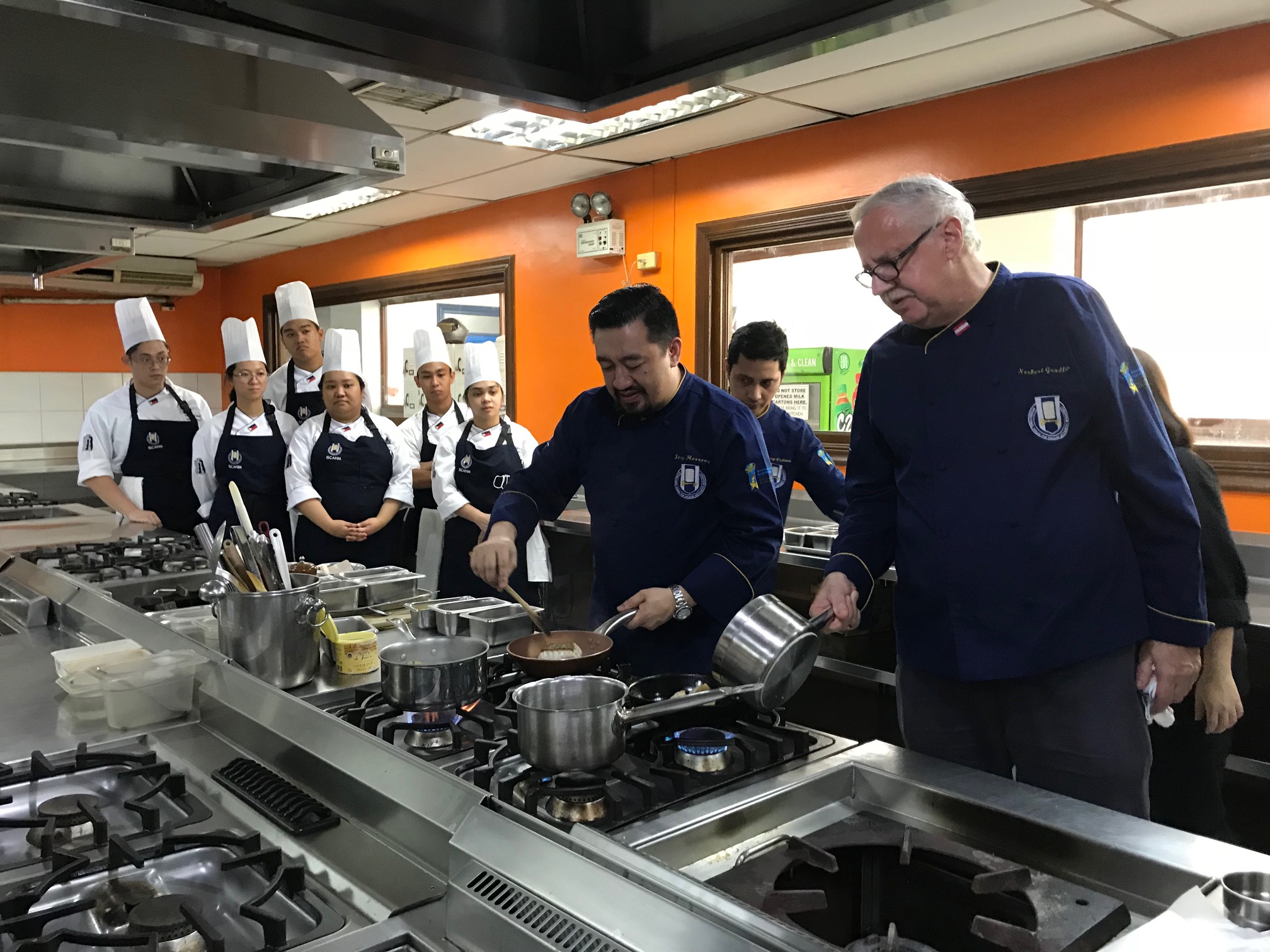The best chefs in the world have undergone rigorous and extensive training before they fully mastered the art of cooking food. But beyond hands-on kitchen experience and the long years of studying, there’s one thing that enabled them to establish their careers in the industry—mentorship. This key to success isn’t something drawn from piles of books but acquired through years of experience in the field itself.
For over 15 years, the International School for Culinary Arts and Hotel Management (ISCAHM) has been training aspiring chefs in culinary and pastry arts, offering courses ranging from two sessions to a full term of 14 months as well as the first-ever senior high school program offered by a culinary school.
With these options tailored for the different needs of students, how is mentorship injected in the learning process?


Executive director and chef Norbert Gandler wants to mold students in such a way that they are ready for the “real world” once they receive their certifications. As much as possible, he equips them with the skills and techniques necessary in big kitchens so they won’t feel disoriented and confused. Students are trained to create meals for over 100 people during the times they spend inside the school’s kitchen. It’s important that they know how to act under pressure, given that the kitchen can become hectic and noisy and thus, can disrupt communication.
Even before the SHS program was launched, there are students as young as 17 years old who enroll in ISCAHM. On the contrary, there are also those who enroll even at the age of 50. So, how do chefs handle such a diverse set of students?
It comes down to faculty who have sufficient industry experience. Cooking is hands-on so to be able to truly teach it, mentors need to impart knowledge of years’ worth of immersion in the field. As Gandler notes, “If you teach something, one has to know the real thing.”
In handling different age brackets, Gandler didn’t find any problems in interacting with the students as his years of experience permitted him to come across people of different culture, religion, and nationality.
Students learn in the equilibrium of fun and discipline. And while there is minimal interaction with chef-mentors outside class hours, this does not necessarily mean that their doors are closed. Mentorship is important for Gandler because it is vital to advise budding chefs on what steps to take. You cannot move straight to the top; it has to be a process of being qualified to take certain positions.
“There are certain sacrifices you have to make, but there is a lot of satisfaction also,” says Gandler.
Having been an executive chef in established hotels and restaurants all over the world, and now one of the founders of this international culinary school with three campuses to date, Gandler says that being a chef requires a strong personality.
It isn’t only about feeding people, it’s also about enabling yourself to be an artist, to find creativity and satisfaction tied with the passion for food. Through mentorship, students get an in-depth perspective of the ways around the industry, along with a few tips and tricks that you wouldn’t get elsewhere.

